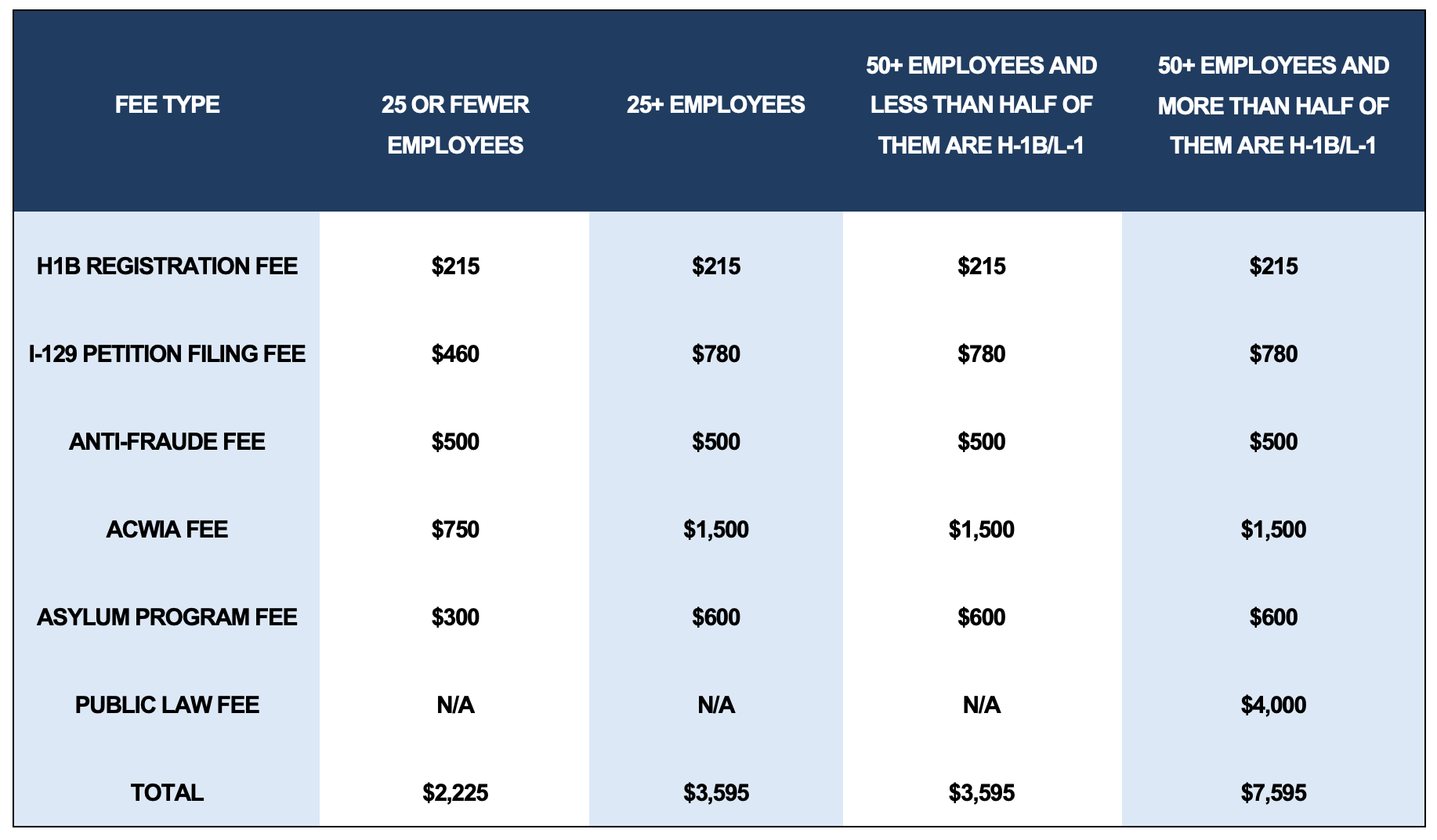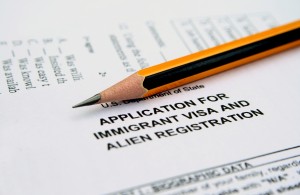H-1B Filing Fees and Key Information for 2025 – 2026
H-1B Visa 2025: Higher Fees, New Rules, and What Employers & Workers Need to Know
The H-1B visa program is changing in 2025, and employers, HR teams, and foreign workers need to be prepared. This year’s lottery comes with increased fees, new employer obligations, and policy shifts that could impact your chances of securing a visa.
If your company is planning to sponsor an H-1B employee—or if you’re a foreign worker hoping to apply—here’s what you need to know before the registration period opens on March 7, 2025.

1. Higher Registration Fee: From $10 to $215
In past years, the H-1B lottery registration fee was a low $10 per applicant—a cost so minimal that many employers applied for large pools of candidates.
This year, the fee has increased to $215 per registration, marking a 2,050% increase. The goal? To discourage frivolous applications and reduce the overwhelming number of duplicate entries in the lottery.
🚨 Takeaway for Employers & Applicants:
- Companies must budget for higher registration costs.
- Applicants should coordinate closely with employers to ensure registration is handled correctly.
2. New $600 Asylum Program Fee for H-1B Employers
A new $600 “Asylum Program Fee” has been added for H-1B petitioning employers. This fee will fund asylum processing costs, shifting some of the financial burden from government budgets to companies hiring foreign workers.
📌 Who Pays This Fee?
- $600 → Large companies (25+ employees)
- $300 → Small businesses (25 or fewer employees)
- Exempt → Nonprofits & educational institutions
🚨 Key Takeaways for Employers:
- If you’re sponsoring an H-1B worker, factor this additional cost into your budget.
- This fee applies when filing Form I-129, after the applicant is selected in the lottery.
3. Extended “Cap-Gap” Work Authorization for F-1 Students
For international students on F-1 visas, USCIS has extended the Cap-Gap work authorization period.
Previously:
- F-1 students with pending H-1B petitions had work authorization until October 1.
Now:
- Work authorization extends until April 1 of the following year, giving students six additional months of uninterrupted employment while waiting for their H-1B approval.
🚨 What This Means:
- Employers can avoid employment gaps when hiring F-1 students transitioning to H-1B status.
- Students can continue working legally longer while awaiting their visa decision.
What This Means for Employers & Applicants
These changes make it more expensive and complex to apply for an H-1B visa. Whether you’re an employer navigating the process or a worker seeking sponsorship, expert guidance can make all the difference.
How Our Firm Can Help:
✅ Register your H-1B lottery application correctly to avoid errors
✅ Ensure compliance with new fees & employer obligations
✅ Maximize your chances of success by preparing a strong petition
Don’t risk costly mistakes—let our team guide you.
📞 Schedule a consultation today!




